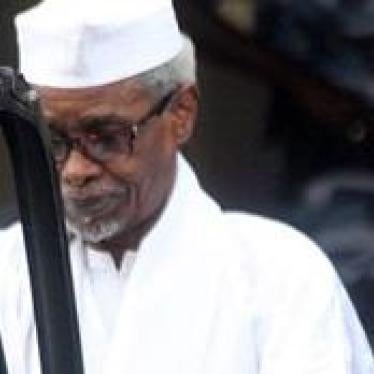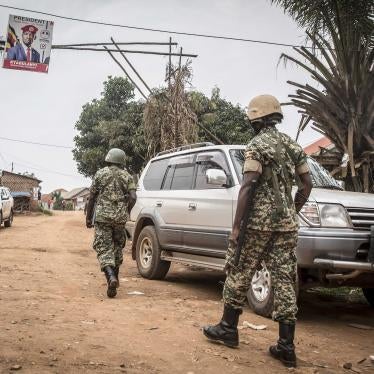(Brussels) - The United Nations’ top anti-torture body has rebuked Senegal for failing to bring Chad’s exiled former dictator Hissène Habré to justice, Human Rights Watch said today. The panel requested Senegal to prosecute Habré in Senegal, or extradite him to stand trial in Belgium or elsewhere.
The U.N. Committee against Torture ruled that Senegal had violated the Convention against Torture by failing to prosecute or extradite Habré, who has lived in Senegal since 1990. (A copy of the ruling in French can be found here.)
Habré, who ruled Chad from 1982 to 1990, is accused of thousands of killings and systematic torture. A Senegalese judge ordered the arrest of Habré in 2000 on torture charges before appeals courts said they had no jurisdiction to hear the case. Last year, following a Belgian extradition request for Habré to stand trial for crimes against humanity, war crimes and torture, Senegal referred the case to the African Union, which has yet to decide what to do.
“This ruling means that Senegal cannot allow Hissène Habré to escape justice,” said Reed Brody of Human Rights Watch, the lawyer who represents the victims before the U.N. Committee. “The U.N. decision puts the law back into a case that was becoming a political soap opera. Senegal will now have to decide whether to extradite Habré or bring him to trial in Senegal.”
The U.N. Committee against Torture is composed of 10 experts elected by the 141 states that have ratified the Convention against Torture. States usually comply with its decisions, and Senegal is expected to do so. In 2001, Senegal complied with the committee’s preliminary request not to allow Habré to leave Senegal.
In November, Senegalese authorities detained Habré pursuant to Belgium’s arrest warrant. After a Dakar court refused to rule on the extradition request, President Abdoulaye Wade of Senegal referred the matter to the African Union. At the A.U. summit in January, a committee of jurists was appointed to study the case and report in July to the next A.U. summit in Banjul, Gambia.
“When Senegal ratified the torture convention, it promised the world that it wouldn’t provide a safe haven to torturers, but in 15 years it has taken no action against Habré,” said Alioune Tine of the Dakar-based African Assembly for the Defense of Human Rights (RADDHO). “Now the U.N. is reminding Senegal of its promise. My country can’t afford to ignore this ruling.”
The 1984 U.N. Convention against Torture, which Senegal ratified in 1986, obliges states to either prosecute or extradite alleged torturers who enter its territory.
The committee also called on Senegal to amend its law to allow trials for foreign torture cases.
The petition to the U.N. panel was brought by the same seven Chadian victims who had filed the criminal case in Senegal in January 2000 which led to Habré’s first arrest. The plaintiffs were jubilant at the decision.
“The United Nations has heard our pleas,” said Souleymane Guengueng, a Chadian accountant who almost died of dengue fever during two years of mistreatment in Chadian prisons, before helping to found the Chadian Association of Victims of Political Repression and Crime (AVCRP). “If Senegal won’t put Habré on trial for what he did to us, it must hand him over to Belgium, which will.”
The Belgian government has said that if Senegal refuses to extradite Habré, Belgium will invoke article 30 of the Convention against Torture, which could lead it to taking Senegal before the International Court of Justice (ICJ). A decision by the ICJ would be legally binding on Senegal.
In March, the European Parliament also called on Senegal to bring Hissène Habré to trial or extradite him to Belgium.







